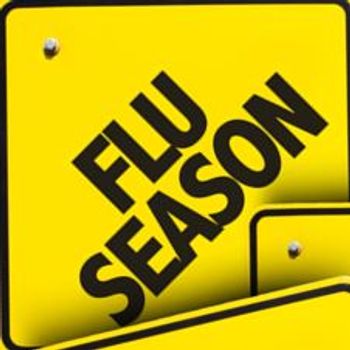
Insights Into The Currently Available Vaccine Technologies
Neil Skolnik, MD, reviews the currently available vaccine technologies, highlighting their mechanisms of action and individual delivery methods.
Episodes in this series

John Russell, MD, FAAFP: So now we're going to talk about some of the new technology of vaccines. Neil, I know you are very excited about things that are new in the literature. Do you want to kind of walk through some of the newer technologies? Certainly, we have stuff that dates back, you know, 50, 60 years, but you want to walk through some of the newer things in flu?
Neil Skolnik, MD: Yeah. John. And we'll cover this real quickly because I think the more interesting and impactful things are what we were talking about how to combat vaccine hesitancy. But briefly, you're right, we've had inactivated flu vaccine grown on an egg base for years. That presents some challenges and potential challenges because, remember, what would happen if there were essentially an epidemic among chickens? And we've been worried about that for years and years, or a shortage of supply of hen’s eggs to create the vaccine. Well, now we have cell-based vaccines that are actually grown in a dog kidney-based cell culture. And the advantage here isn't so much that there's no egg in it. Yes, rarely, there's someone who has a severe egg allergy. We'll talk about that later. But that isn't the main thing. But the reality is we're not dependent on that supply of eggs to produce coming vaccines and they can be produced more quickly. This recombinant flu vaccine, now it's currently available at a high dose. There's adjuvant flu vaccine, inactivated vaccine with an adjuvant that makes it more immunogenic. Which is something that's going to be looked at a lot more over the years to increase the immunogenicity of vaccine because we don't hit the degree of protection that we wish we did every year with flu vaccine. There's live attenuated nasal vaccine that had a hiccup primarily due to storage issues early on, about a decade ago. But now clearly good data on its efficacy and [it] is much more attractive for many people who don't like the idea of a shot. There's high dose, as we all know, and we'll talk about, later, quadrivalent vaccine that's recommended for people [aged] 65 and older. There's lots of other things that are kind of in the pipeline, mRNA [messenger RNA] vaccine, viral vector vaccine. This is an area of intense research. But the biggest issue I don't think here is excitement about what is to come, but is excitement among people like ourselves about how to use what we already have.
John Russell, MD, FAAFP: So, Neil, you mentioned briefly the mRNA vaccines that might be a next year thing, not this flu season, but potentially next season, there might be some mRNA vaccines.
Neil Skolnik, MD: Yeah, but I don't want to, again, spend too much time on that because I think the exciting thing for our colleagues or not so much the exciting thing, but the critical thing, is how to optimally utilize the vaccines that we have. Because the mRNA vaccine, as exciting as it is with regard to moving quick, if there's a change in strain and the ability to manufacture, may actually create some additional issues with regard to vaccine hesitancy.
Transcript is AI-generated and edited for clarity and readability.
Newsletter
Enhance your clinical practice with the Patient Care newsletter, offering the latest evidence-based guidelines, diagnostic insights, and treatment strategies for primary care physicians.

































































































































